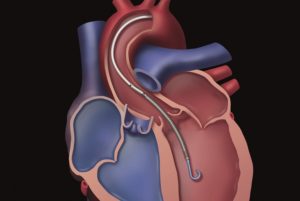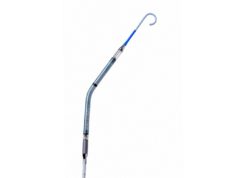
Abiomed has announced the US Food and Drug Administration (FDA) has accepted and closed the post-approval study reports related to the pre-market approvals (PMA) for Impella heart pumps.
The FDA’s action is another affirmation that Impella heart pumps are safe and effective for cardiogenic shock, high-risk PCI, post-cardiotomy cardiogenic shock, cardiogenic shock in the setting of myocarditis or cardiomyopathy, and right heart failure, the company said in a press release.
The FDA typically requires post-approval studies for medical devices that receive a PMA, the FDA’s highest level of regulatory approval. FDA post-approval studies use high-quality prospective data to confirm that the clinical study data submitted to the FDA to receive a PMA applies to a broader, real-world population of patients.
In total, Abiomed completed five post-approval studies for Impella over the seven years since its initial PMA was received. This large, multicentre experience was conducted at 46 sites and enrolled a total of 1,833 patients.
“This significant regulatory milestone once again confirms the safety and efficacy of Impella across a variety of clinical indications. I applaud the physician-researchers who led these studies and thank the patients who participated in them,” said Chuck Simonton, Abiomed’s chief medical officer.
The company has also announced new programme to address healthcare disparities in underserved communities, as new data provides an example of how better access to Impella heart pumps can improve health equity for non-Caucasian cardiovascular patients. Data from a subgroup analysis of 93 non-Caucasian high-risk PCI patients enrolled in the PROTECT II randomised controlled trial found those who were treated with Abiomed’s Impella heart pump had significantly improved clinical outcomes compared to those who were treated with the intra-aortic balloon pump (IABP).
Specifically, the analysis found, when compared to patients who received IABP, Impella patients experienced a 48% reduction in major adverse events (MAE), the primary endpoint of the PROTECT II trial, out to 90 days post-procedure. (p=0.018), a 60% reduction in major adverse cardiac and cerebral events (MACCE) out to 90 days post-procedure (p=0.032), a 75% reduction in irreversible events (death, stroke, myocardial infarction) from discharge to 90 days post-procedure (p=0.044).
The analysis of this subset population was pre-specified in the statistical analysis plan for the MAE primary endpoint of the PROTECT II trial. Patients in the analysis were included in Abiomed’s regulatory submission to the US FDA that resulted in the FDA granting Impella approval as safe and effective for high-risk PCI.
“This data about the benefit of Impella-supported procedures for non-Caucasian patients is highly compelling and should be used to inform physicians’ clinical decision-making when treating non-Caucasian patients who have heart disease,” said William O’Neill (Henry Ford Health, Detroit, USA), the principal investigator of the PROTECT II trial.










